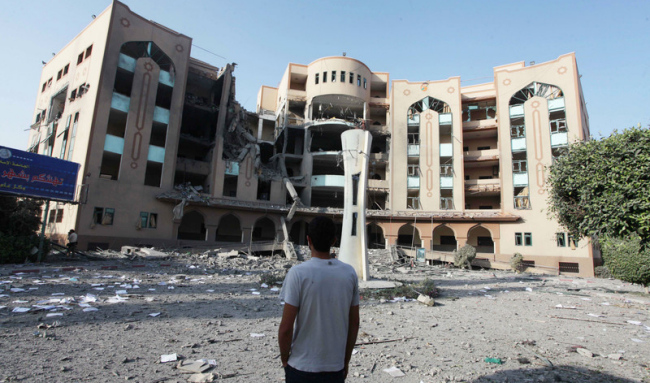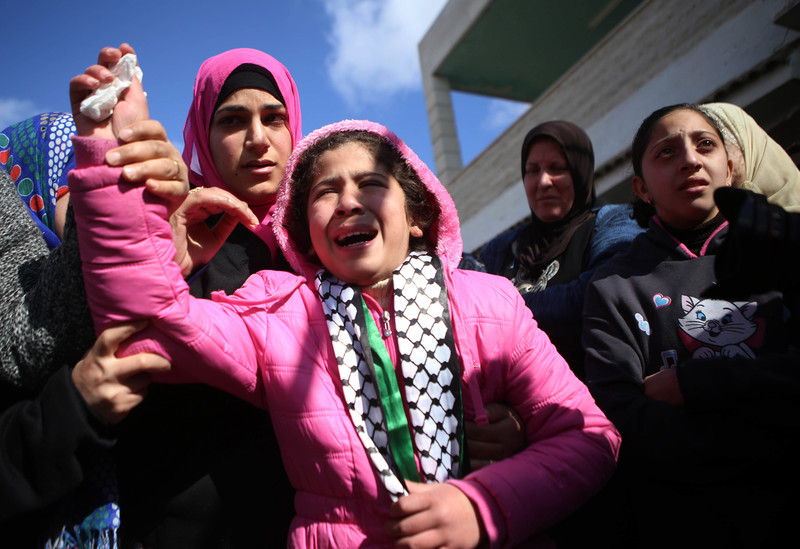170 academics at Italian universities call for boycott of Israeli institutions
 PRESS RELEASE
PRESS RELEASE- Launch of the Stop Technion campaign urges suspension of all academic collaboration with the Haifa-based technical institute
- Italian initiative part of a growing global trend of scholars taking a stand for Palestinian rights
- Italy is one of Israel’s key military and academic partners in Europe
- For the first time, an Italian academic association will debate the Palestinian call for Boycott, Divestment and Sanctions
This marks the first Italian initiative of academic boycott and shows the existence of a solid, critical block of scholars within Italian institutions who are no longer willing to tolerate complicity with Israel’s violations of international law and human rights. The well-documented and notorious complicity of Israeli academic institutions with Israel’s state violence and the utter lack of any serious condemnation on their part since the foundation of the state of Israel led to the initiative.
The scholars also wished to demonstrate solidarity with their Palestinian colleagues who continue to experience grave human rights violations and denials of their basic academic freedoms. The initiative exclusively targets Israeli institutions while allowing for individual collaborations with Israeli colleagues.
Israel continues to carry out its policies of systematic dispossession and discrimination against the Palestinian population living in the occupied territories, within present-day Israel and in the diaspora. Following almost five decades of military occupation and nearly seven decades after the state of Israel was created mainly on land ethnically cleansed of its Palestinian indigenous population(including lands on which Israeli academic institutions were built), a majority of Palestinians are refugees, most of whom are stateless.
The call signed by Italian scholars focuses on the Technion Institute of Haifa due to its role in supporting and maintaining Israel’s policies of dispossession and military violence against the Palestinian population. A number of Italian universities have cooperation agreements with Technion, including the Polytechnic Universities of Milano and Turin and the universities of Cagliari, Florence, Perugia, Rome and Turin. The scholars urge Italian institutions and their colleagues to suspend all forms of institutional collaboration with Technion, which is deeply involved in Israel’s military-industrial complex and directly complicit in the violations of international law and the rights of Palestinians.
The Italian initiative is particularly significant considering the strong ties that make Italy one of Israel’s key military and academic partners in Europe. A military cooperation agreement between the two countries provides for joint military research, training exercises and development of weapons systems. In 2012, Italy was Europe’s top weapons exporter to Israel. The hope is that additional Italian, European and international academics will join the effort to ensure human rights and justice for the Palestinian people.
The Italian call is just the latest in a continuing trend of scholars speaking up for Palestinian rights. In recent months, over 500 academics in the United Kingdom, 450 in Belgium, 200 in South Africa and 120 in Ireland have signed similar pledges. The number of academic associations supporting the Palestinian call for boycotts continues to grow and includes the American Anthropological Association, National Women’s Studies Association, American Studies Association, African Literature Association, Association for Asian American Studies, Association for Humanist Sociology, Critical Ethnic Studies Association, National Association for Chicana and Chicano Studies, Native American and Indigenous Studies Association, and the Peace and Justice Studies Association.
In mid-March, the Italian Society for Middle Eastern Studies will host a panel discussion on the academic and cultural boycott campaigns against Israel during its annual conference in Catania, marking the first time an academic association in Italy will publicly debate the BDS/PACBI campaigns.
Contacts: campagnastoptechnion@gmail.com


